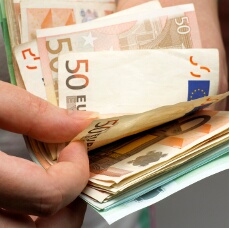
The euro dipped on Friday, falling to a new multi-year low versus the US dollar, even though economic data from Germany was fairly positive. As the majority of most-traded currencies, the euro gained on the yen after the Bank of Japan maintained its exceptional monetary stimulus.
The GfK German Consumer Climate rose from 8.7 to 9.0 in December. The report said:
The development of consumer sentiment in Germany has been very robust in December, with the consumer climate maintaining its upward trend.
The German Producer Price Index was unchanged in November instead of falling 0.2 percent as was predicted by analysts. The index was down 0.9 percent from a year ago. As for bad news, the eurozone current account surplus shrank to â¬20.5 billion in October from â¬32.0 billion in the previous month.
Even with positive macroeconomic indicators, the euro was unable to hold ground. The most likely reason for this is the outlook for continuing monetary easing from the European Central Bank. The euro, as well as other currencies, gained on the very weak yen.
EUR/USD dropped from 1.2285 to settle at 1.2226, close to the lowest level since August 2012. EUR/GBP fell from 0.7839 to 0.7821. EUR/JPY ended the Friday’s trading session at 146.15 following the rally from 145.98 to 146.74.
If you have any questions, comments or opinions regarding the Euro,
feel free to post them using the commentary form below.